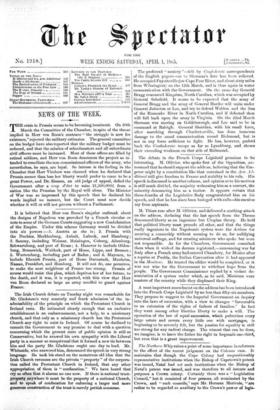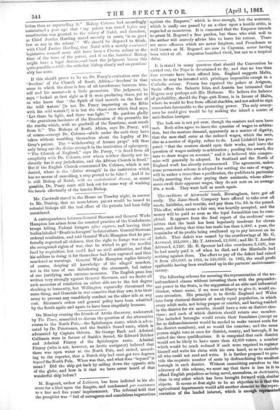The Northern Whig raises a point of some importance in
reference to the effect of the recent judgment on the Colen,so case. It maintains that though the Cape Colony had unquestionably representative institutions when the Bishop of Capetown's patent was issued, Natal had not such institutions when the Bishop of Natal's patent was issued, and was therefore to all intents and purposes a Crown colony. Certainly there was a "Legislative Council," but it consisted of four persons, all nominated by the Crown, and "such councils," says Mr. Herman Merivale, "axe rather to be regarded a's auxiliary to the Crown's power of legis- lation than as superseding it." Bishop Colenso had accordingly maintained a year ago that "my patent was issued before any constitution was granted to the colony of Natal, and therefore, as Chief Justice Harding stated recently in court, 'is as good law as any in the colony." We should be disposed to think, with Chief Justice Harding, that Natal with a merely nominated legislative council must still have been a Crown colony at the time of the issue of the patent, and if so the heretical Bishop might have a legal diocese,—at least the judgment leaves this quite possible,—while the orthodox Bishop clearly and unquestion- ably has none.































 Previous page
Previous page